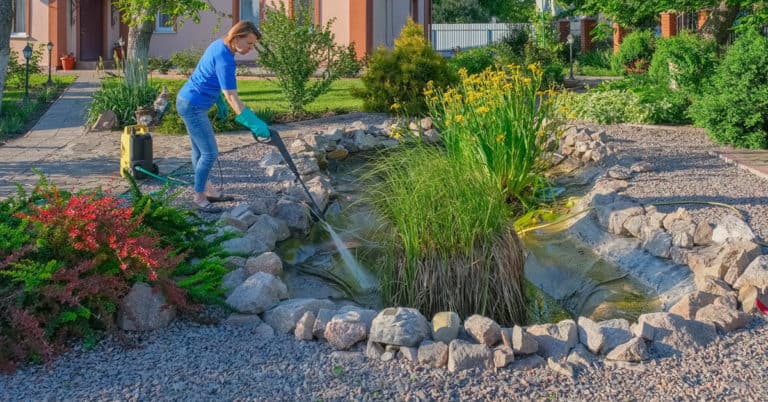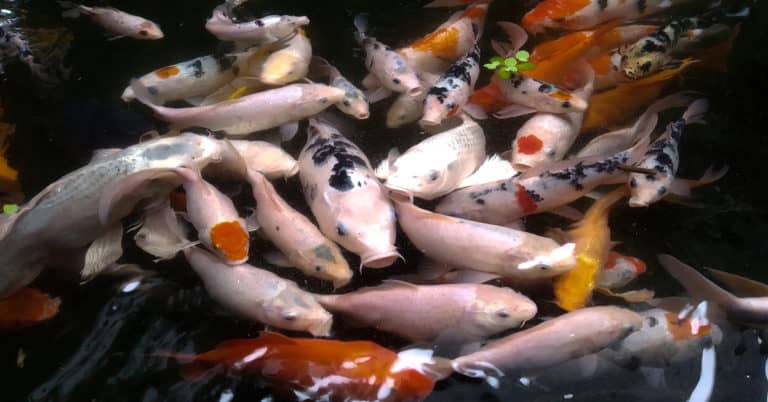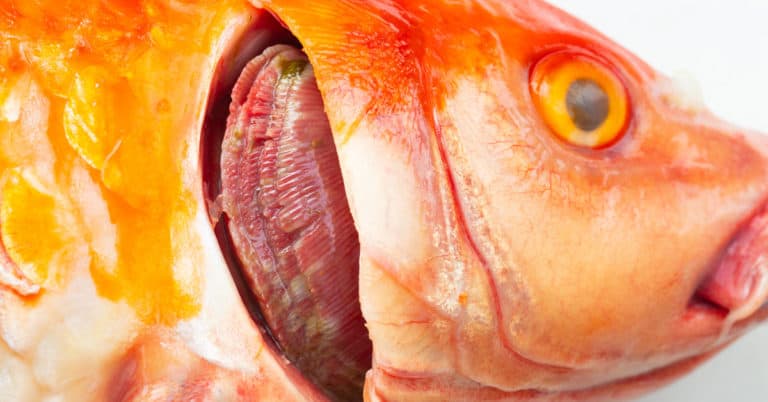Raccoons are a common sight in urban and rural communities and are often seen at night, looking for food or traveling with their babies.
Raccoons are a native species to North America, and they are common in Japan and Europe. They vary in size from four to 23 lbs and between 23 and 37 inches in length. Raccoons often resemble a small dog or large cat in shape and size.
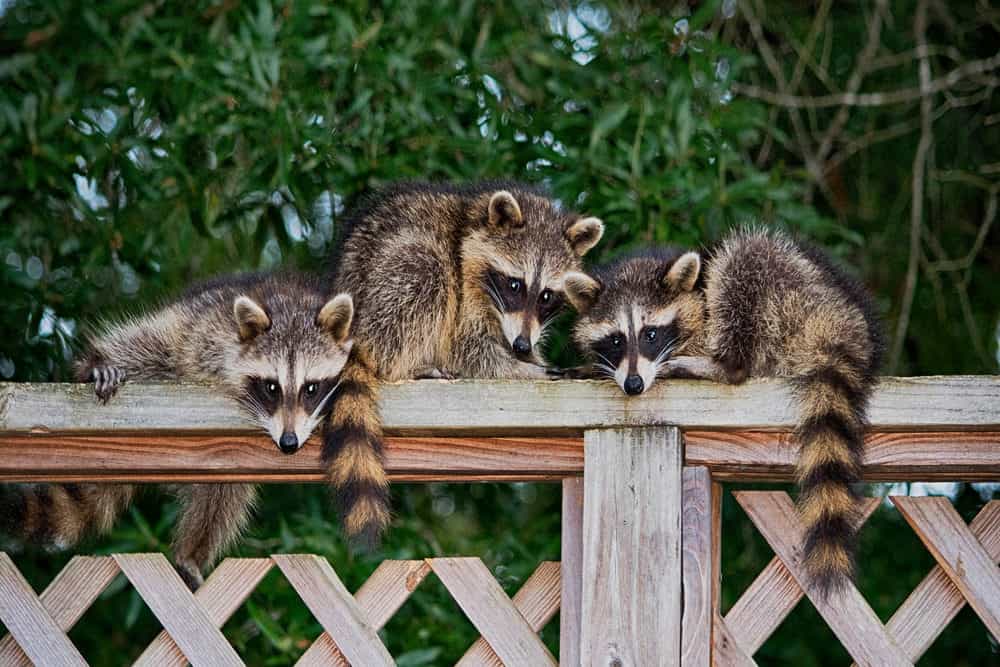
At first glance, raccoons appear to be cuddly, fuzzy, approachable animals, though they are prone to becoming defensive and may attack. They are a wild animal and have a distinct appearance, including a black mask covering their eyes as a part of their fur pattern and a bushy tail.
Raccoons are incredibly protective of their babies and should be avoided if you encounter them up close. If you’re a fish owner, you may be wondering whether or not raccoons eat fish - in fact, they are one of the major Koi Pond Predators that may raid your pond - second only to https://koipondhq.com/keep-herons-out-of-koi-pond/koi eating Herons. Read below to find out more about raccoons and their diet.
Raccoons are highly concentrated in certain regions, especially southern Ontario, Canada. On average, there are approximately three to thirteen raccoons every kilometer (0.6 miles), and they tend to drop in population further north in the same province. Raccoons are also heavily concentrated in New York state and other regions just outside of Ontario.
They migrate up to 45 kilometers (27 miles) and travel more frequently and widely in urban areas. Niagara region is an area where various studies were conducted to observe raccoons' movements in rural areas.
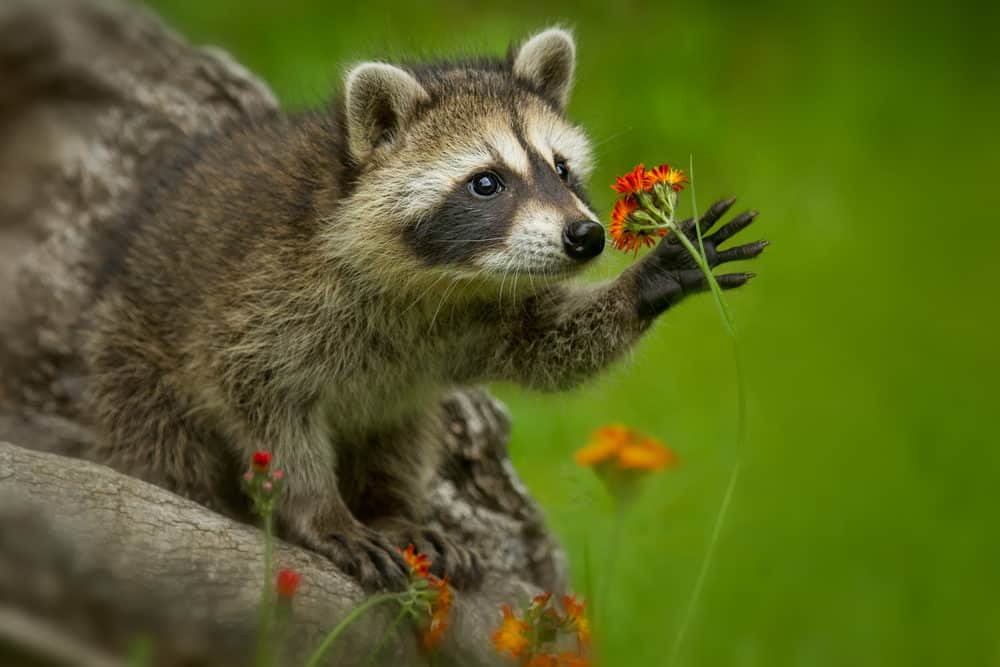
However, they remain within a shorter distance in the countryside, contrasting with cities or densely populated areas. When raccoons migrate with their young, they tend to travel further distances in rural regions. A raccoon population adapts well to various environments and are overall very successful in settling into both city and rural areas.
In one study, scientists trapped several animals throughout the Niagara region to measure raccoon density, which indicated roughly the same density in rural and urban areas. In raccoons, one consistency noted was their ability to travel and adapt to changing environments with little or no issues.
Raccoons are highly adaptable creatures and thrive in a variety of urban and rural environments. They easily create habitats in many structures, both natural and manufactured. Raccoon's homes are called dens, and they range from caves or openings in forests or ravines, trees, abandoned sheds, barns, and cars. You'll find these incredibly resourceful animals in many communities, whether you live in the city or a small countryside area.
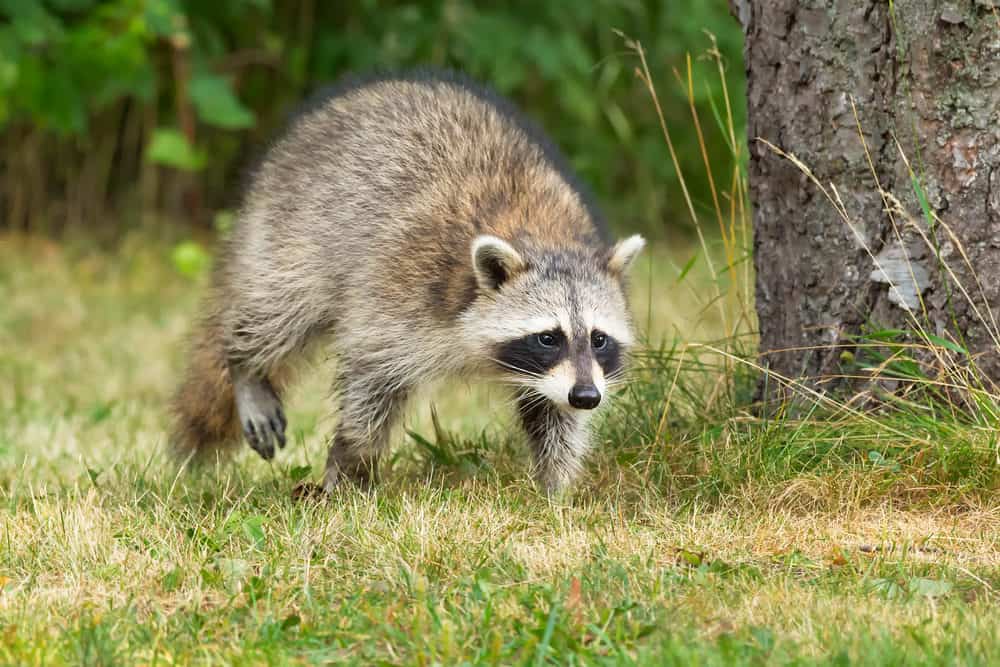
When raccoons settle in urban areas, they can be vicious around humans and prone to attack if they feel threatened. In most cases, you'll encounter them rummaging through open trash cans or recycling bins, looking for food scraps.
It's best to avoid raccoons and keep your pets away from them, as they are known to carry roundworms and rabies. For this reason, it's not advisable to have a pet raccoon, as they can carry disease and infect other pets or humans.
Raccoons are resourceful animals that will eat a wide variety of foods. They are an omnivore and typically include a lot of meat and vegetables in their diet.
It's common to find them reaching for just about any type of food in a local trash bin, even if it's a packaged dessert or table food scraps. If you leave pet food outside, this will attract raccoons, as they may readily take available food before exploring the community garbage bins.
Raccoons eat fish, meat, scraps, vegetables, fruit, and more.
In most cases, raccoons prefer fresh food sources, so they often choose fresh fruits and vegetables as part of their diet.
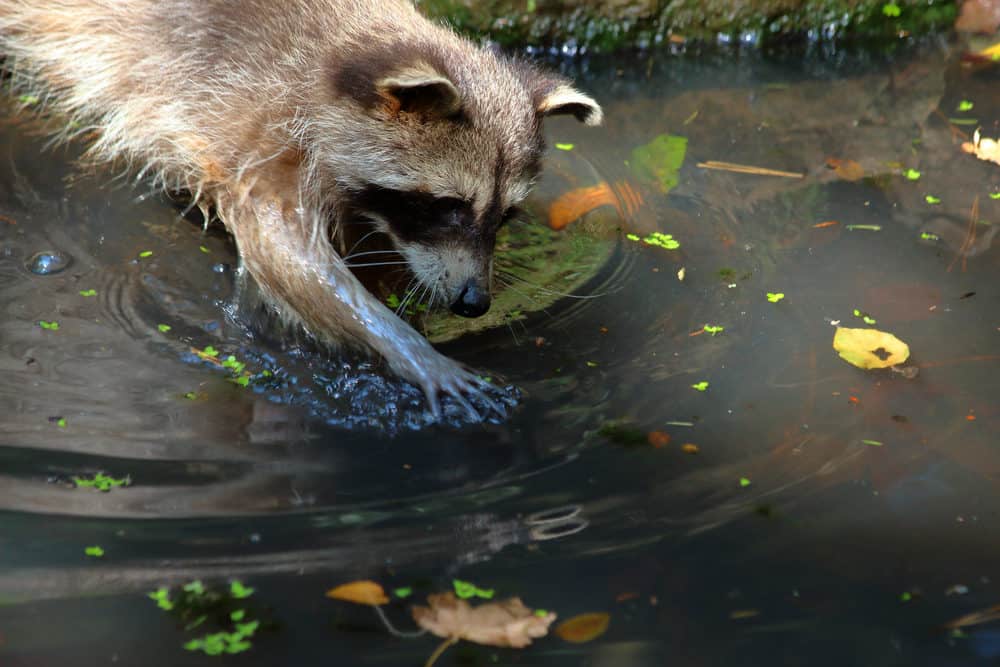
Some of their favorite foods include:
Raccoons also eat many meat sources, including fish, crayfish, insects, bird eggs, frogs, and rodents.
When sources of food, either meat or vegetables, are not readily available, raccoons will search through refuse, discarded food on the street, roadkill, and trash bins as a source of food. They are very resourceful and often have no trouble finding sustenance for themselves, and they're young.
Raccoons eat fish, especially in areas where new sources of fish are available for them. If you own a small fish pond with a healthy amount of fish and pond plants, raccoons will likely visit your yard for a meal. They are a known pond predator and easily catch small fish with just one swipe of their paws.
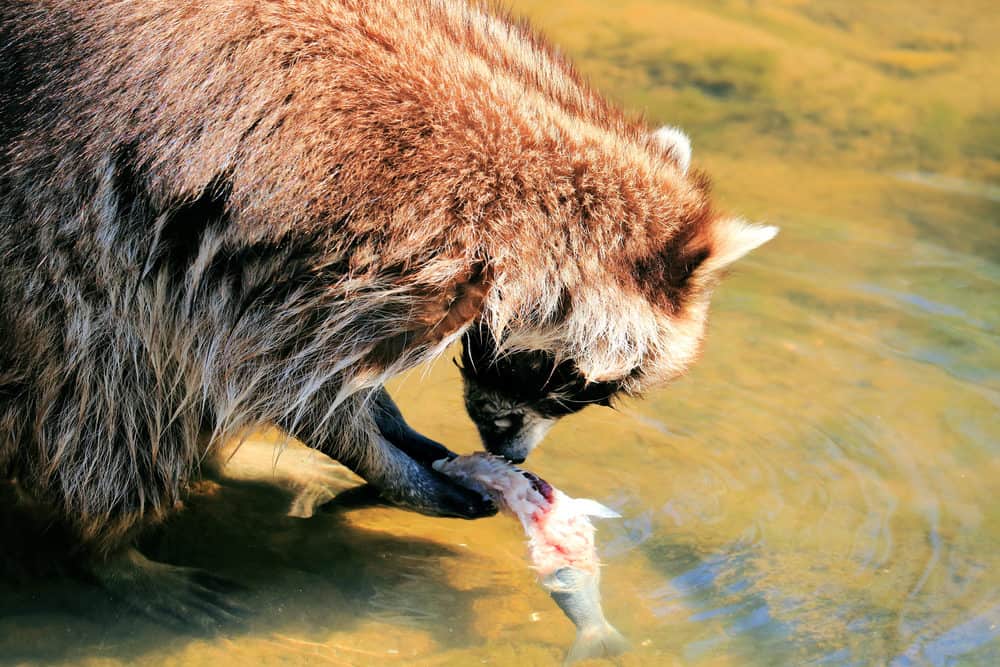
If they live near a lake or stream, raccoons will quickly make the fish supply a part of their diet. They typically enjoy small types of fish, including crayfish, koi fish, goldfish, crustaceans, and other fish that are easy to catch in shallow water. Raccoons will not dive into deeper waters to fish and only track their prey in shallow streams or ponds.
Raccoons adapt to their surroundings and typically search for new food sources, like fish, small animals, and vegetation. In city areas with a dense human population, raccoons may not have the same access to natural food and resources as they do in more natural areas with a better source of fresh food.
If you have a pond or source of water on your property, it's best to cover it during the night or secure the area, to prevent raccoons from feasting on any plants or fish.
You'll also keep squirrels and other local wildlife away from food sources on your property, including plants and vegetable gardens. If there are plenty of new sources elsewhere around your home, raccoons may avoid personal property altogether.
Securing community trash bins, receptacles, and recycling containers are essential to keep raccoons away from your home. Many vessels have a lock or lid that fastens with a handle, which prevents rodents and raccoons from entering. It also limits vermin and insects, which keeps the surrounding area more sanitary.
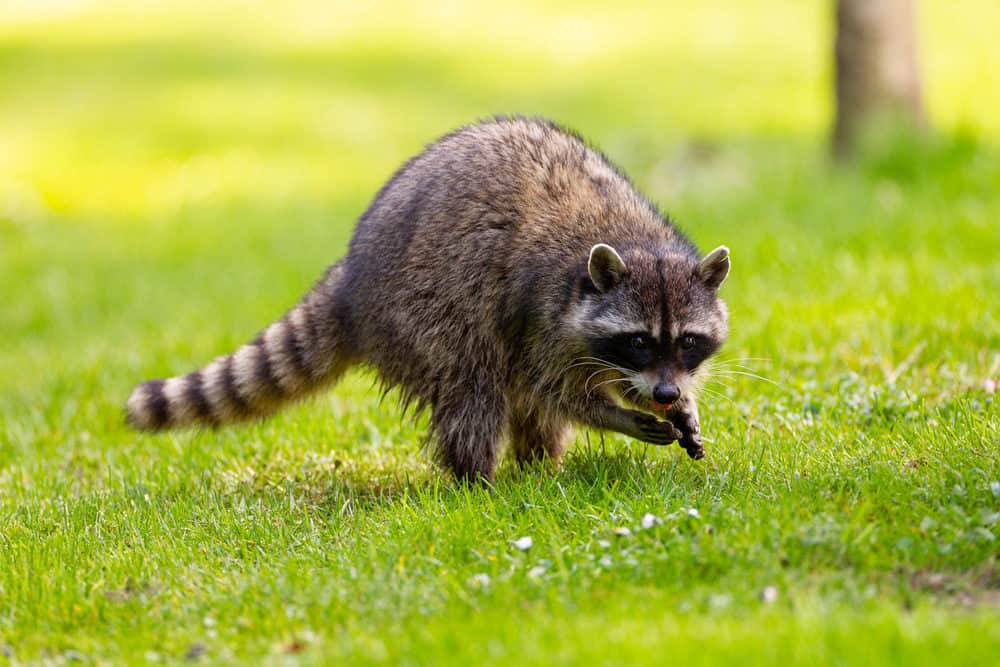
Since raccoons tend to favor fresh food, they're more likely to target your garden and fresh food than rummage through trash bins unless they can't find another source of food. Many raccoons prefer insects, small rodents, and frogs, and unless there is a shortage of food, they may avoid human contact and homes.
If an adult raccoon has babies or is part of a vast population, they may search for more sources of sustenance, including organic composts and garbage bins. Keeping any food or food-related items in a secure or locked container will keep raccoons away, and any attempts to open the bins will be thwarted.
Raccoons are nocturnal, and you'll see them wandering in the neighborhood towards the evening hours and during the night. They are most active at night, and if they're noticed, they tend to hurry away quickly to avoid human contact.
Raccoons are not social creatures and avoid contact with humans and larger animals as much as possible. They rarely attack humans unless they feel trapped, where they may get vicious.
Suppose there are concerns about a raccoon family or settlement on your property or nearby. In that case, it's essential to contact a wildlife professional to find a solution for an increased raccoon presence.
Overall, raccoons tend to avoid humans, and the best way to coexist with them is to secure any food sources around your home.
On occasion, a raccoon may be spotted roaming during the day. This sighting is a sign that they may be ill or injured and in need of help. If you observe a raccoon in this situation, it's best to contact an animal or wildlife control organization to handle the animal and avoid approaching them completely.
Raccoons venturing in the daylight may also carry diseases, or appear injured, which is another reason to stay clear of them and call for support.
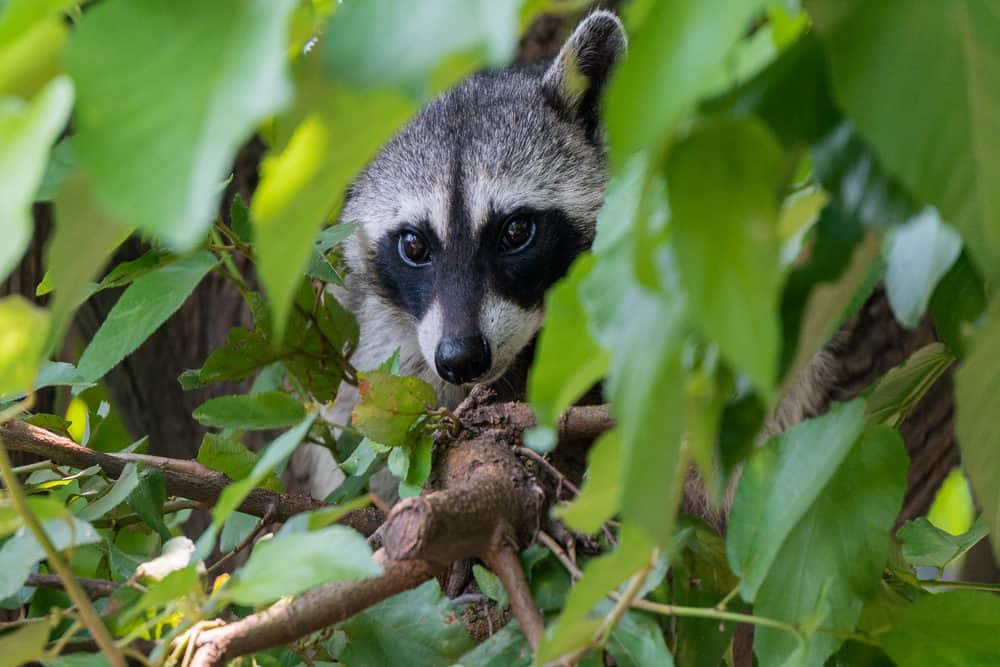
There are other reasons why a raccoon may wander during the day instead of their usual night routine. In some cases, there may be a shortage of food, and raccoons need to search longer hours when food sources become readily available.
Raccoons moving during daylight hours may be migrating from one habitat to find another, especially if they've been attacked or chased from their home.
If a raccoon has babies, they may search for food during the day because their young are too small to hunt or scavenge for themselves. You may also notice them in daylight during the spring or early summer months when raccoons have babies with them.
Whether you notice raccoons during the day or night, they are most likely in search of food. They will typically search for all the same types of food they prefer and take anything they can if there's a shortage. For this reason, it's essential to keep personal property protected, especially where raccoons are frequently seen.
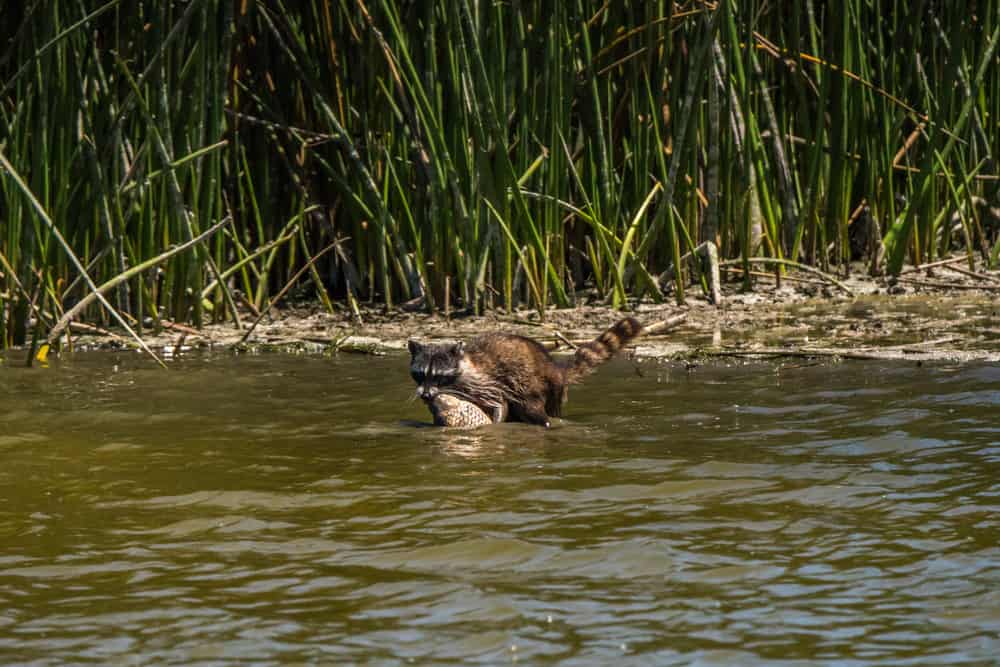
If you live near natural food sources, such as a lake or forest, raccoons may venture into these areas if there are no food sources near your home. In most cases where raccoons roam during the night or day, they migrate quickly and tend to leave the area.
It's essential to wait at least 24 hours before calling wildlife professionals unless you suspect they create a new home or den on your property.
Raccoons are one of the most versatile animals who have a strong sense of survival in many environments. They live and thrive in many habitats and can create a home or a den in virtually any type of condition.
Raccoons blend into dense city centers and sparsely populated rural regions. Due to their resourceful nature, they survive well in many conditions, including challenging or hostile environments.
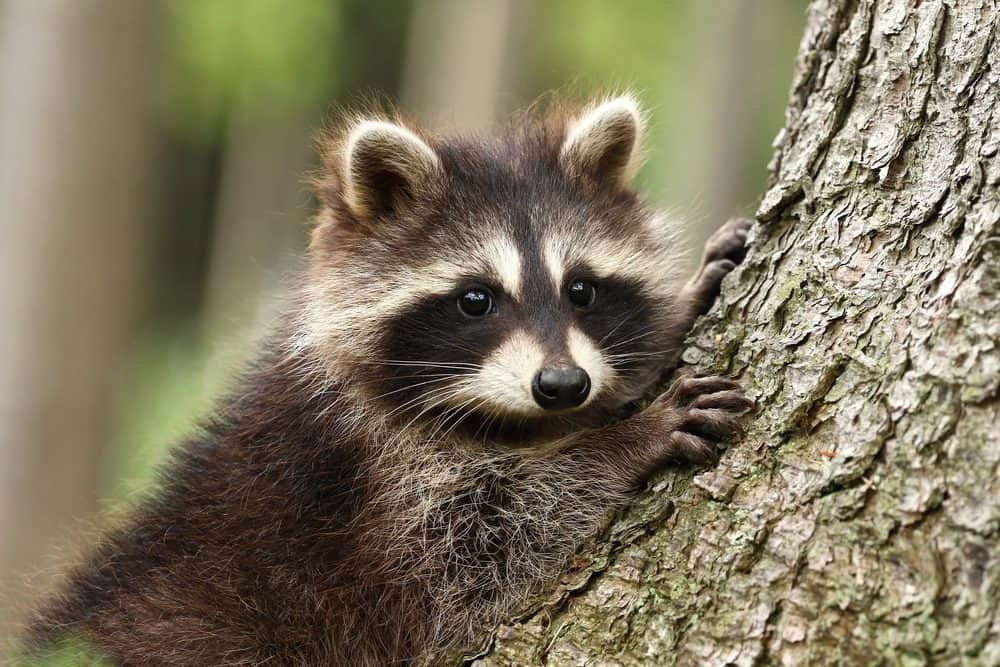
They tend to leave people alone, and their primary mission is to secure food, create a habitat, and keep their families safe. Raccoons travel by night, and on occasion, by day, and while they may carry diseases and spread vermin, they are easy to avoid.
Raccoons will search for food in any way possible, even if it means scavenging through garbage bins and outdoor waste. They will settle into a habitat for a long time, though if they notice a lack of food resources or have babies, they will quickly relocate where there are better conditions to raise their young.
Fish are one of the sources of food that raccoons prefer when they have the option of finding local sources of small plants and fish in nearby streams, ponds, and lakes. However, you can take steps to protect your pond from these animals.

